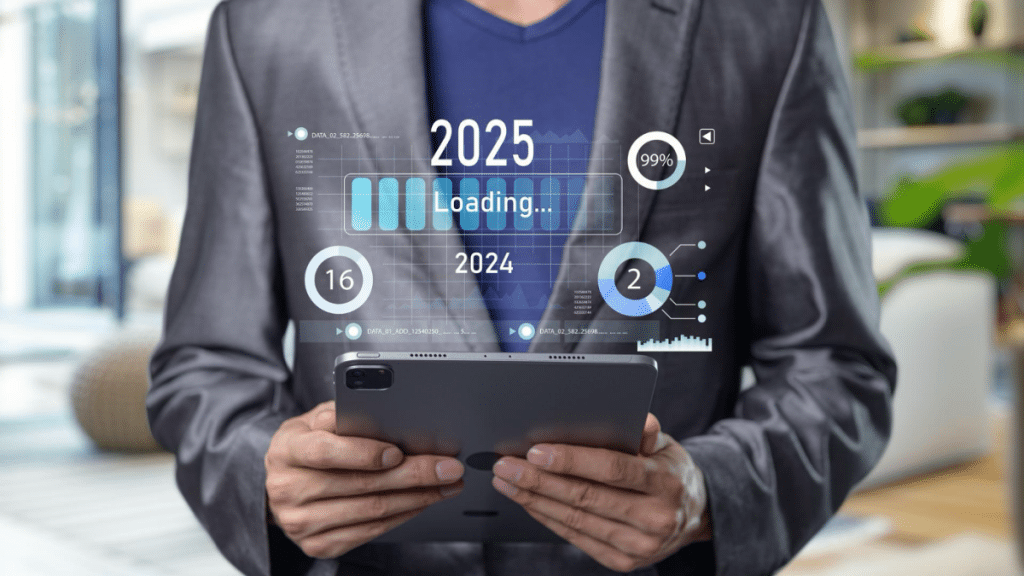Up to 2025, there is little doubt that technology will be advancing more rapidly than at any other time in history. From AI and quantum computing to sustainable innovation and immersive digital experiences, the next decade promises to rewrite all the rules for the ways in which we exist, occupy ourselves, and interact with our proximal environment. This understanding helps us see what is happening in everyday life and what the future may bring.
The Rise of Artificial Intelligence and Automation
One issue that has gained significant attention in recent years and is expected to influence life even more in 2025 is artificial intelligence. AI and machine learning systems have rapidly been improving in both their level of sophistication and in-depth integration into every area of life. In healthcare, transport, finance, and entertainment, all process automation related to user experience will be driven by AI.
As platforms like Ninepicks, which focus on technology and lifestyle, continue to evaluate and review these innovations, it becomes clear how AI is reshaping not only industries but also everyday experiences.
The workplace is one of the key areas where AI will make a significant impact. Various industries have already begun to implement AI-driven tools that help with data analysis, customer service, and content creation.
This trend is likely to continue in 2025 and even be taken one step further, where intelligent systems will perform routine or complicated tasks and free humans to focus on creative and strategic work.
Moreover, AI will continue to reshape the consumer experience: AI-driven personalized recommendations will become even more precise and capable of executing a greater number of tasks autonomously, such as meeting scheduling and home automation. However, with the increasing presence of AI, ethical questions, data privacy concerns, and job losses cannot be ignored.
Quantum Computing: A Leap Forward in Problem Solving
Another major technological development likely to continue shaping life into the next decade is quantum computing. Still, in its infancy, quantum computing has so far promised radical changes in industries heavy in complex calculations, such as those related to pharmaceuticals, materials science, and cybersecurity. By harnessing the power of quantum bits, or qubits, instead of traditional binary bits, quantum computers can solve problems at speeds previously unimaginable.
Quantum computing is expected to make its impact in selected fields by 2025, such as drug discovery, where quantum-level modeling will speed up medication development, and in cybersecurity, where quantum encryption methods will begin to offer safer communication lines against increasingly sophisticated attacks.
Sustainable Technologies: Green Innovations for a Better Future
Due to the ongoing vicious cycle of climate change, the demand for sustainable technologies is increasing. Clean energy, green manufacturing, and transportation systems would give two positive achievements toward sustainability by the year 2025.
This will not only reduce our ecological footprint but also open more horizons both for enterprises and their customers. There will be further development in solar and wind energy, further enhancing efficiency and cost-effectiveness for wide usability.
Electric vehicles will become more economically viable and accessible, thus contributing to bringing down the level of carbon emissions in the transport sector. The circular economy model will lead to more recycling and less waste, enabling industries to shift toward sustainability.
Governments, alongside businesses, are increasingly aware of the importance of sustainability. As a result, the transition to a green economy is expected to accelerate in the coming decade due to new regulations and incentives.
Immersive Experiences: Virtual Reality (VR) and Augmented Reality (AR)
While both VR and AR have struck a chord in gaming and literally every other form of entertainment, applications by 2025 will have gone far beyond that. The immersive experiences of both VR and AR are going to evolve industries around them: education, healthcare, and even real estate.
In education, virtual school field trips, simulations, and other forms of interactive lessons will enhance learning. Medical AR will assist surgeons in critical procedures with real-time data overlays, while VR will aid in pain management and rehabilitation. Potential buyers can take a virtual tour of homes, making the process much easier from the comfort of their own space.
With these technologies maturing, they should be cheaper and more accessible. This will reportedly unlock a wider area of possibility for both consumers and enterprise businesses.
Wrapping Up
Till 2025, trending technology is not an incremental improvement; it’s the beginning of transformational changes that will rewrite the rules of industries, economies, and lives. It could be AI, Quantum Computing, Sustainable Innovation, or Immersive Digital; each new leading technology is revolutionary in the way work and life get executed.
Living in this new era, it is important that we become better equipped with information and flexibility regarding the opportunities and challenges these kinds of innovations may bring. With such developments, one could envision a future where technology improves lives and creates a sustainable and connected world.
